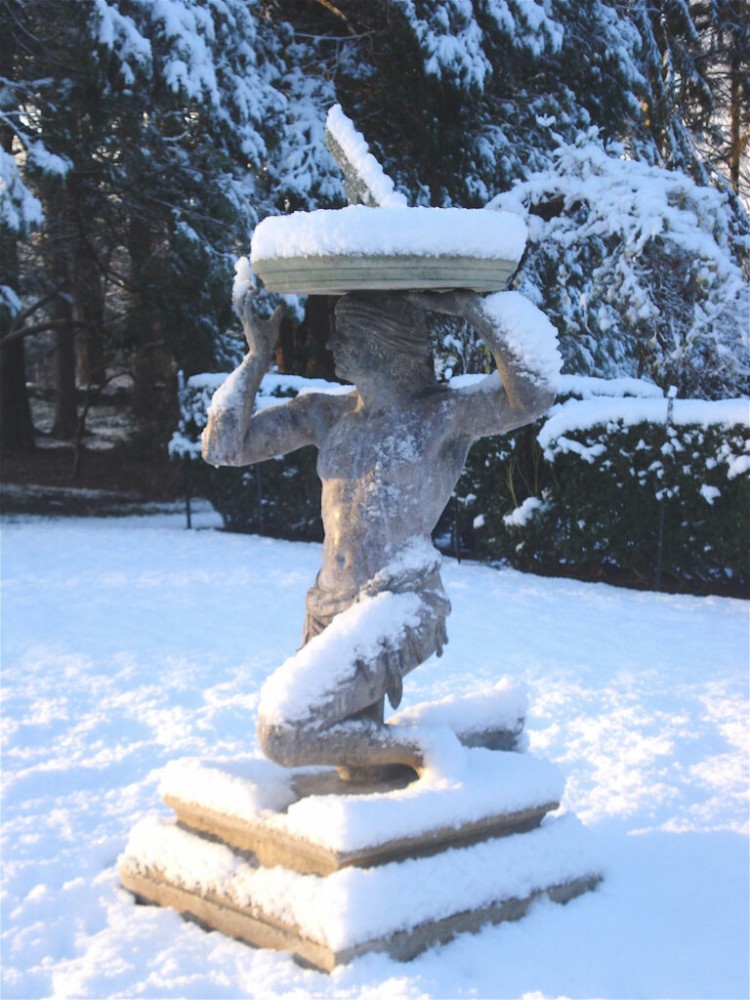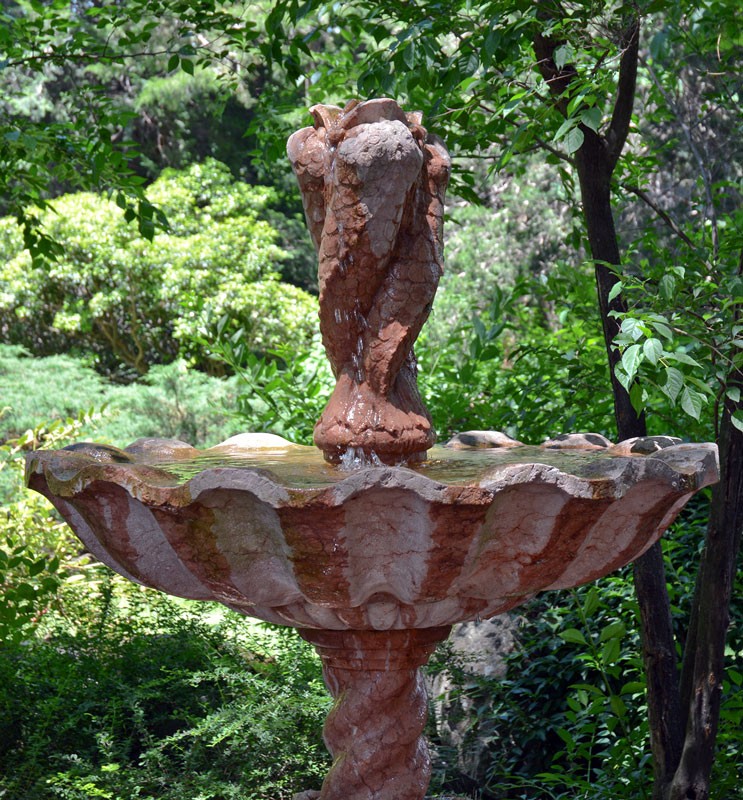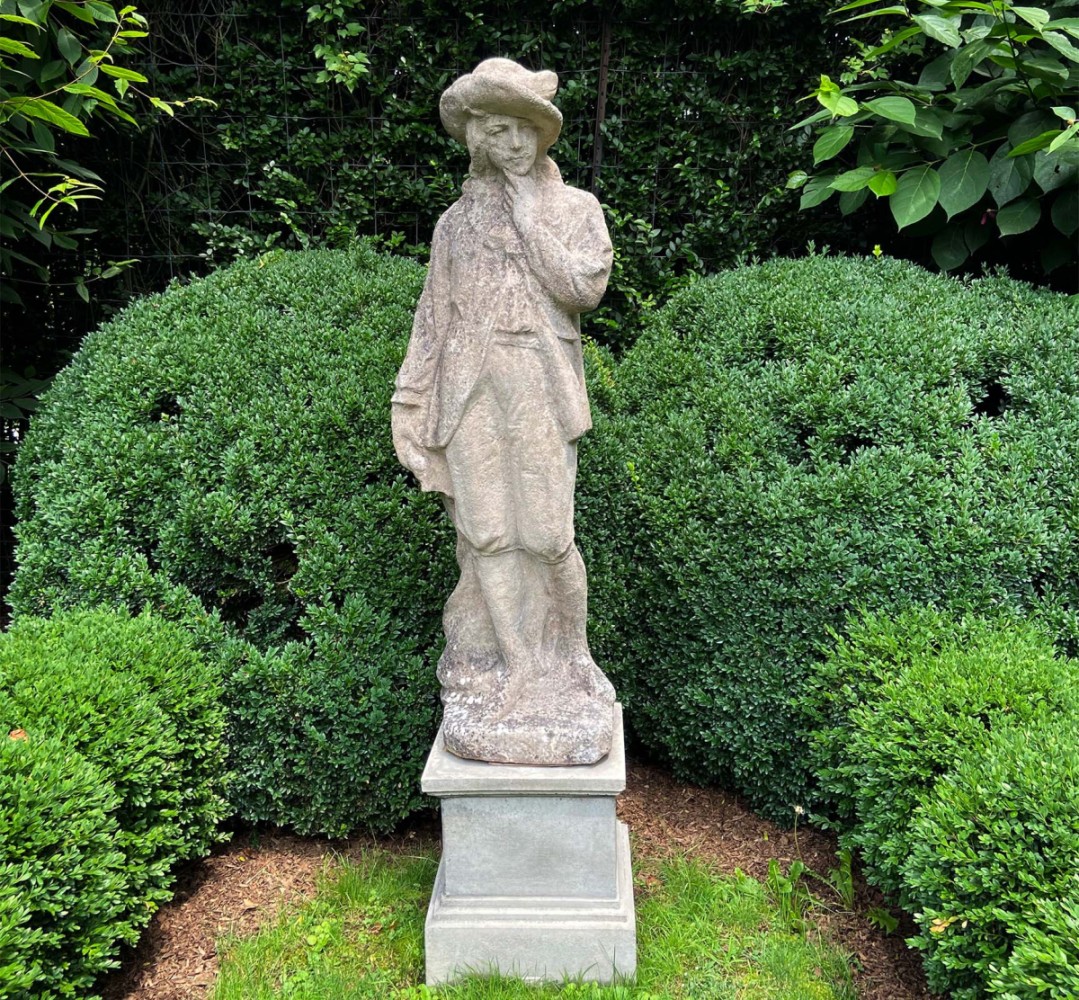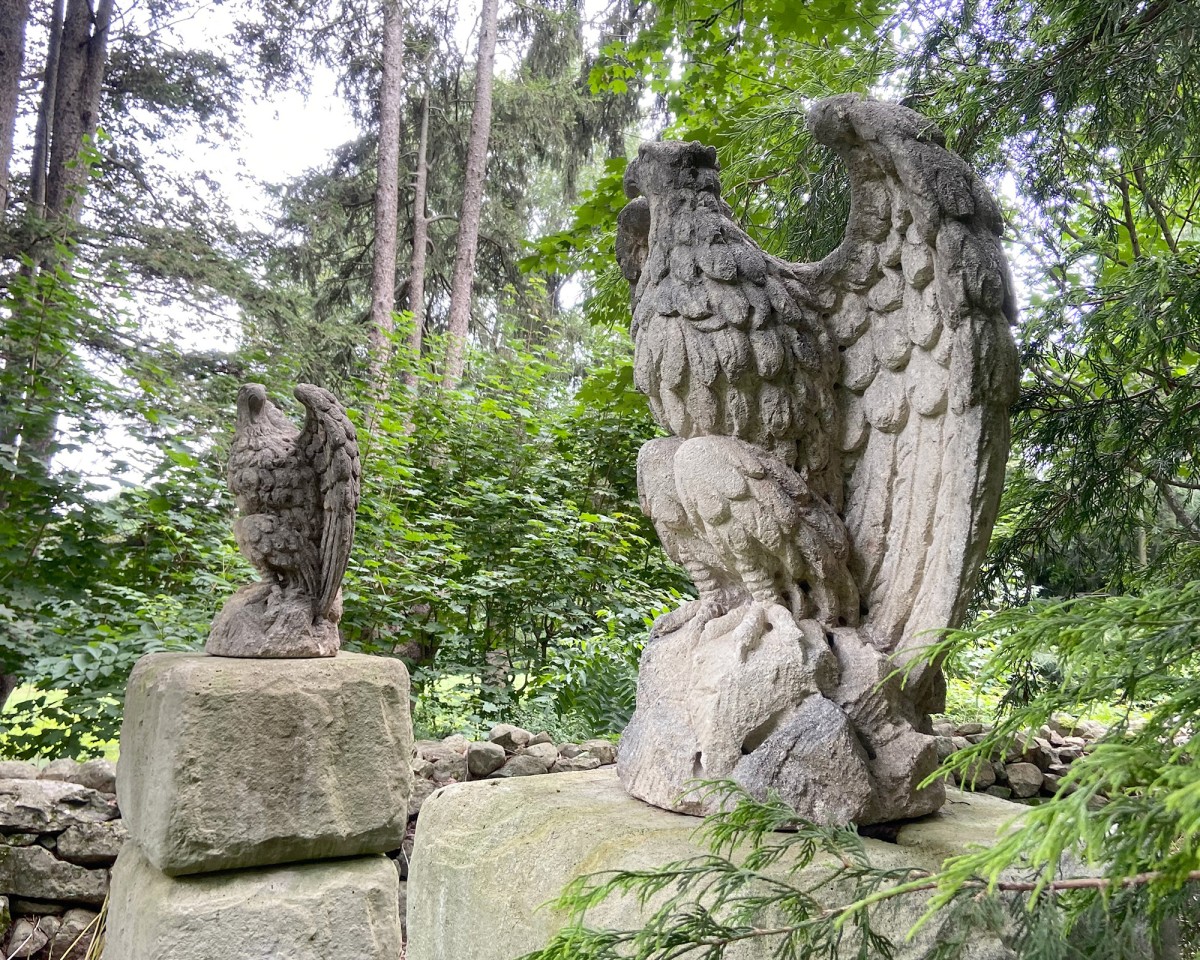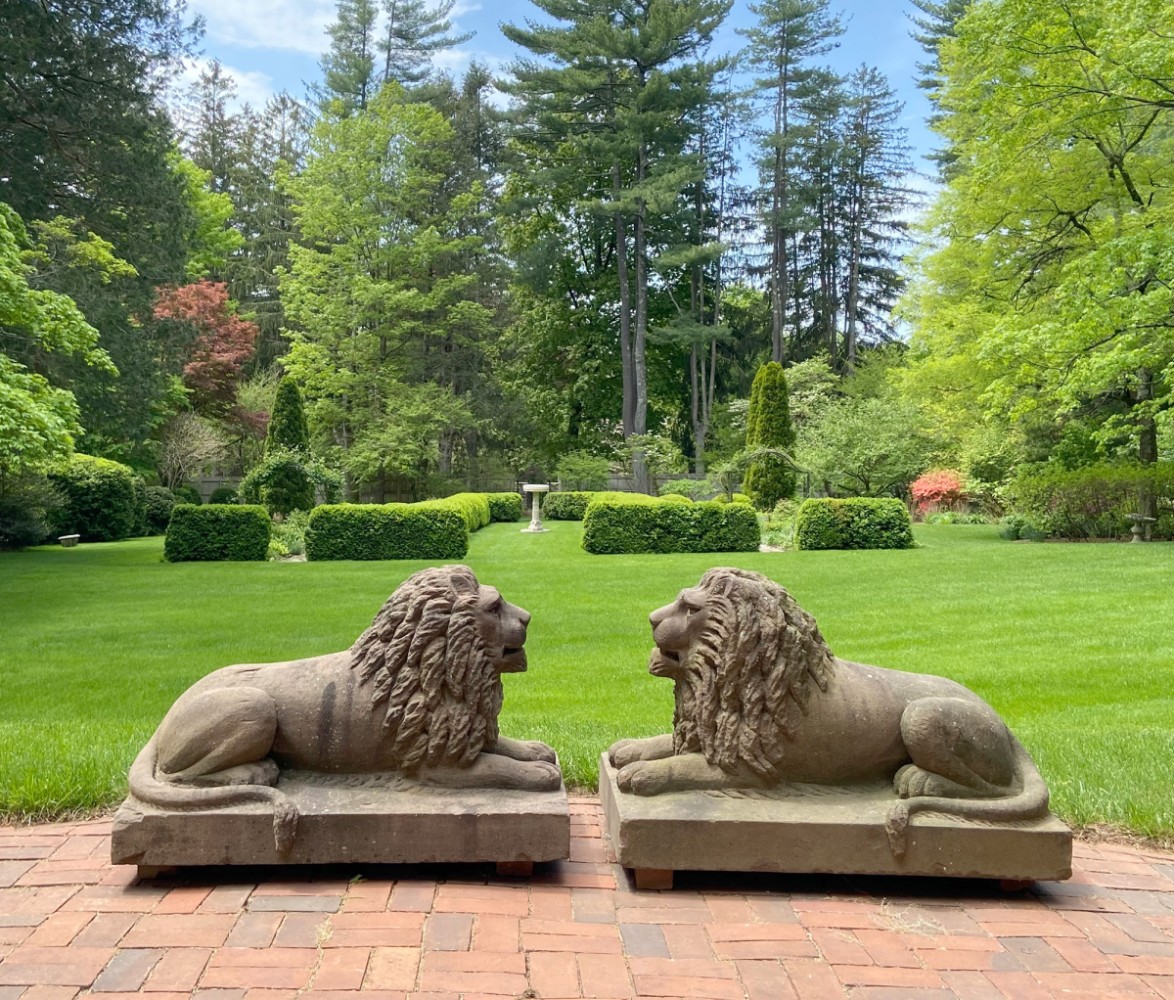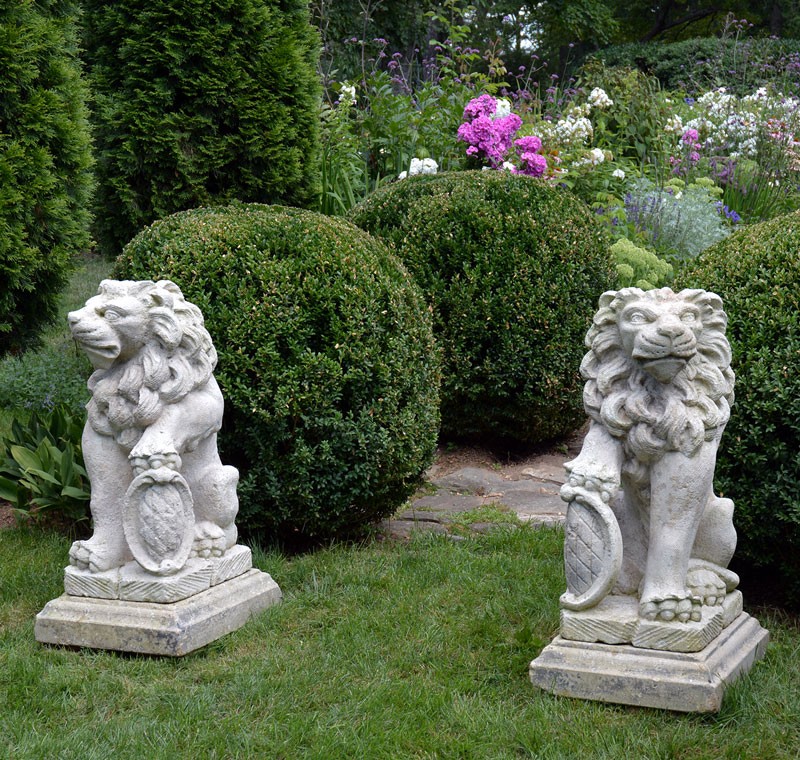New York, USA
Antique garden ornament requires ongoing preservation and care. We recommend regularly consulting a professional conservator and committing to periodic conservation treatments.
Freezing Climates:
Winter wind, snow, and ice can be very damaging to antique garden ornament. We suggest taking the following measures to protect your outdoor antiques:
During winter in freezing climates, it is very important to raise your garden antiques off the bare soil/grass to avoid their freezing to the ground. For example, we suggest putting cast-iron benches up on bricks (one under each leg is sufficient). We also recommend installing permanent cement footings in the ground. Cement footings are particularly needed under heavy statuary that cannot be moved easily. Footings are also more level than bare ground, giving extra stability to your ornaments.
Windy locations:
In windy locations, objects should be attached to pedestals or secured to permanent structures with cords. Or they can be taken down from pedestals and placed flat on a cushioned support. Portable pieces, particularly those made of terra cotta, stoneware, or composition stone will do better if taken indoors.
Surface Protection:
Unsealed cracks in a marble, stone, or composition stone object can collect water that may freeze and thaw causing further cracking. Therefore, we strongly recommend protecting all of your garden antiques with breathable polypropylene, weatherbags. Weatherbags are available in several standard sizes to fit urns, statues, fountains, and more. Weatherbags can also be custom-made to fit any size ornament. They are, like Gortex, waterproof and breathable. At the request of many clients, Barbara Israel Garden Antiques has developed Weatherbags, protective weather-resistant covers for all forms of garden ornament. We do not recommend using plastic garbage bags to cover valuable ornaments. Air needs to circulate while the object stays dry. In Great Britain they use wooden sentry boxes, a way more traditional solution. These custom-built 'houses' protect fragile statues from all kinds of winter weather.
Containers:
All urns, birdbaths, and fountains should be emptied of soil and water before the first winter frost and covered and/or tipped over to prevent the build-up of damaging snow and ice. Planted containers are more at risk if the reservoir is filled with dirt. Water can still enter, collect, freeze, and thaw. Portable components, such as the tops of birdbaths, can be removed altogether, laid vertically against the pedestal, or stored indoors. Cast-iron urns with drainage holes are less susceptible to damage than stone, marble, or composition stone vessels, but measures should still be taken to protect their surfaces from moisture (see Cast Iron below).
Materials:
In general, we recommend bringing terra-cotta objects indoors during freezing months. Terra-cotta oil jars require particular care. Even if they have drainage holes, they should still be brought indoors or, at the very least, turned upside down. If moving the jar is impractical, consider having a custom-made lid of wood or metal constructed to fit over the opening to prevent the entry or accumulation of water in the bottom.
Composition (cast) stone is the most porous of garden ornament materials and requires careful attention in winter. Bases of statues that sit in snow all winter have been known to crack and fall apart. If, when you’re buying a composition stone piece, you see an exposed piece of a rusty iron armature, be cautious and reconsider the purchase. This is a serious condition problem.
Cast-iron garden pieces have their own problems and solutions that require specific care and attention. If you need to identify which of your urns or benches are cast iron, take a kitchen magnet and see if it sticks to the surface. It will adhere to iron but not to aluminium, bronze, or zinc. Unfortunately, rust is a constant companion, and if cast-iron ornaments are left out in the rain or snow unprotected, it will turn up. But with sufficient primer and enough coats of paint, rust can certainly be kept at bay. The positive side of cast iron in winter is that structurally it can survive freezing weather even better than some stone pieces. While cast iron tends to be more impervious to winter weather than terra cotta or stone, be aware that freezing temperatures can cause brittleness and breakage. Do not attempt to move any cast-iron garden seats that have frozen to the ground as legs, made brittle in freezing weather, can snap off easily.
Note:
Salvo Code member, Barbara Israel Garden Antiques specialises in fine antique garden ornament from Europe and America in a beautiful sculpture garden based in an 1830 farmstead in Katonah, NY 10536, USA. Please call the New York office to make arrangements to visit.
Images show a selection of garden ornament from Barbara Israel Garden Antiques.
SalvoWEB directory: Barbara Israel Garden Antiques
Story Type: Reference
